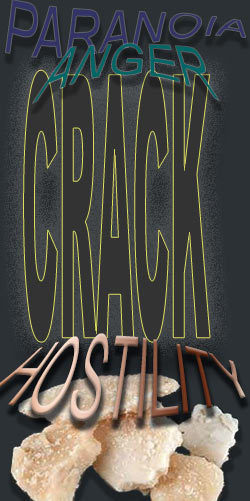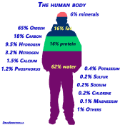The Rapid Spiral of Crack Cocaine Addiction
Most people want to stop using crack. But crack cocaine is a nasty substance. It has a high addiction potential. Many individuals find themselves hooked by its grip after just a few attempts. The immediate euphoria it creates is incredibly appealing.
It offers a swift escape from worries, anxieties, and physical discomfort. In essence, it numbs the user, leading to a rapid descent from any level of responsibility, including self-care, to the neglect of oneself and others. How do you stop using crack? Read on.
The Continuous Tightening Grip of Crack

The Difficulties of Quitting or to Stop Using Crack Cocaine
Due to the immediate and short-lived impact of the drug, individuals often find themselves repeatedly using it, lighting up one pipe after another.
This tendency occurs because users consume only what they can inhale in one sitting. Small quantities are being burned each time. The fact that crack is a purified form of cocaine means the person is taking a more potent dose.
Individuals ingest a much more concentrated dose, typically 75% to 100% purity. When someone smokes crack, its chemicals enter the bloodstream and reach the brain more rapidly than when snorting cocaine.
Consequently, each successive inhale tightens the grip of addiction, leading to the rapid development of compulsive misuse. People do want to stop using crack.

Stages of
Addiction
Drug
Overdose

Anxiety, Paranoia and Crack
The misuse of crack cocaine triggers the brain’s pleasure centers, leading to a profoundly heightened sense of euphoria. However, a severe crash (depression) and an intense craving for more of the drug quickly follow. Crack cocaine often induces feelings of paranoia, anger, hostility, and anxiety, even in periods when the user is not under the influence.
Regardless of the duration or quantity of use, it is evident that this drug poses a significant health risk. Because the drug narrows and thickens blood vessels, it reduces the oxygen supply to the heart.
This situation forces the heart muscle to operate more vigorously. Users are susceptible to experiencing life-threatening events such as heart attacks, strokes, seizures, or respiratory failure. Also, because every use is short-lived, every hit carries a risk of overdose.

Alcohol
Overdose
Understanding
Cravings

Withdrawal Effects of Crack Cocaine
What Happens When You Stop Using Crack Cocaine?
In our observation, the most challenging withdrawal symptoms associated with crack cocaine primarily manifest psychologically. But let’s not discount the presence of physical symptoms, including fatigue and various aches and pains.
However, individuals going through crack cocaine withdrawal may experience a range of psychological symptoms, including
- depression,
- paranoia,
- anxiety,
- mood swings,
- restlessness,
- agitation, and
- many other adverse emotions.
What to Do to Quit or Stop Using Crack Cocaine?
One can do a few things to loosen the grip of crack addiction. Addictions are known to deplete important vitamins and minerals necessary for your body’s optimal functioning.
Crack addiction burns up vitamin B1 and significantly diminishes glutamate, a neurotransmitter that plays a role in memory and concentration.
L-glutamine supplements can be useful in loosening the grip of crack. Also, vitamin C helps detoxify your body while minimizing drug cravings and strengthens your immune system.
You can read more on cravings here.

Alcohol and
Depression
Drug Induced Psychosis

The Greatest Downfall are Cravings
The intensity of cravings may be the hardest part to overcome. Get through cravings by following these few tips;
- Getting into a vitamin regimen.
- Keeping your mind busy with something you like.
- Exercise yourself at not being in your head. Put your attention outward. Going for walks when possible and noticing your surroundings helps.
- Eat good foods and avoid junk food.
- Avoiding places where you used crack.
- Avoiding people who use crack.
- Avoid any other drugs, including alcohol.
- Finally, get support from people in recovery.
Do You Want to Quit or Stop Using Crack Cocaine?
Crack cocaine is one of the toughest drugs to quit. You can attempt the steps mentioned above. But if you find it too difficult, please consider seeking assistance from a trained professional. Ultimately, an addiction treatment centre can assist you to quit or stop using crack cocaine.
You can request a callback from our certified drug and alcohol specialist, who can help you in the matter. They can also locate the best detox or rehab centers for you.
More reading;

Addiction Series
- Alcohol and Depression
- Alcohol, Dangers in Stopping
- Alcohol Overdose
- Addiction – Beginning
- Addiction Symptoms
- Addiction Consequences
- Drug-Induced Psychosis
- Drug Overdose
- How to quit crack cocaine?
- It’s Difficult to Quit Drinking
- Overlooking Addiction & Diagnosing Depression
- Stages of Addiction
- Quitting Weed
- The Functional “Addict” Defined
- Understanding Cravings
- What is Addiction?
- Alcohol and Depression
- Alcohol, Dangers in Stopping
- Alcohol Overdose
- Addiction – Beginning
- Addiction Symptoms
- Addiction Consequences
- Drug-Induced Psychosis
- Drug Overdose
- How to quit crack cocaine?
- It’s Difficult to Quit Drinking
- Overlooking Addiction & Diagnosing Depression
- Stages of Addiction
- Quitting Weed
- The Functional “Addict” Defined
- Understanding Cravings
- What is Addiction?
Find out more about us.

Marc J. Bernard
Author,
Substance Use Disorder & Recovery Professional,
Referral & Consultation Counsellor





